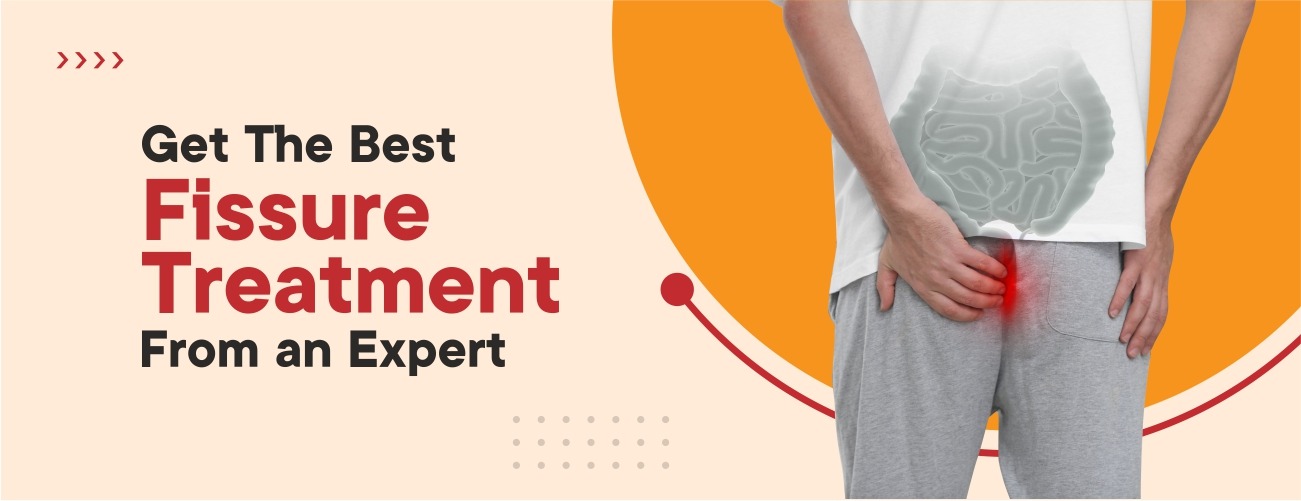Anal Fissure Surgery In Gurgaon

When it comes to Anal Fissure surgery in Gurgaon, SCI Hospital stands out not only for its medical prowess but also for its compassionate approach. Our dedicated healthcare professionals provide comprehensive pre-operative and post-operative care, guiding you through every step of the process. Our skilled surgical team excels in performing precise and effective Anal Fissure surgeries, ensuring relief and improved quality of life for patients.
Choosing SCI Hospital for your Anal Fissure surgery means choosing excellence, reliability, and a commitment to your health. Experience the difference in Gurgaon's leading healthcare institution as we work tirelessly to ensure your well-being and a pain-free future.
What Is Anal Fissure?
An anal fissure refers to a small tear or crack in the lining of the anus, the opening through which stool passes. During bowel motions, this disorder can cause discomfort, agony, and, in some cases, bleeding. Anal fissures typically occur due to factors such as constipation, straining during bowel movements, or even trauma to the anal area.
Prompt medical attention is crucial if you suspect an anal fissure, particularly if the discomfort is persistent. Consulting a fissure doctor in Gurgaon will ensure accurate diagnosis and personalized treatment options. Depending on the severity, treatments may range from topical ointments and dietary modifications to surgical interventions.

Types Of Anal Fissure
Acute Anal Fissure: Acute fissures are recent tears or breaks in the lining of the anus. They are often caused by factors like constipation, passing hard stools, or straining during bowel movements. Acute fissures typically cause sharp pain during and after bowel movements, and they can be accompanied by minor bleeding. With proper care and management, acute fissures usually heal within a few weeks.
Chronic Anal Fissure: Chronic fissures are tears that persist for a longer duration, usually beyond six weeks. These fissures might not heal as easily as acute ones and can become more problematic. Chronic fissures often cause more consistent pain, and the tissue around the tear might become thicker. The pain can extend beyond bowel movements and become a constant discomfort. In some cases, chronic fissures might require more targeted treatment, including surgical intervention.
Symptoms of Anal Fissure
The symptoms of an anal fissure can vary in intensity but often include:
- Pain During Bowel Movements
- Bleeding
- Itching and Discomfort
- Spasms
- Persistent Discomfort
- Visible Tear
Causes of Anal Fissure
Anal fissures can be caused by a variety of factors, including:
- Constipation
- Diarrhea
- Anal Sex
- Inflammatory Bowel Disease (IBD)
- Childbirth
- Poor Hygiene
- Muscle Spasms
Our Services
Contact Info
- M 4, Near M Block Market, Greater Kailash-1, New Delhi, 110048
Contact Info
- Plot No. 7, Golf Course Rd, Sector 43, Gurugram, Haryana 122002
How Is An Anal Fissure Diagnosed
Diagnosing an anal fissure typically involves a combination of medical history, physical examination, and sometimes additional tests. If you're in Gurgaon and seeking the best fissure treatment, qualified medical professionals can guide you through the diagnostic process.
Medical History: Your healthcare provider will start by asking you about your symptoms, including details about any pain, discomfort, bleeding, or changes in bowel habits you've experienced. They may inquire about your medical history, previous conditions, and any factors that might contribute to the development of an anal fissure.
Physical Examination: The anal area will be checked out physically. This may involve visually inspecting the area for signs of a fissure, such as a small tear or crack in the skin around the anus. The healthcare provider may use a gloved finger for a gentle examination of the anal canal.
Digital Rectal Examination (DRE): In some cases, a digital rectal examination might be performed. During this exam, the healthcare provider inserts a lubricated gloved finger into the rectum to feel for any abnormalities, such as tightness or muscle spasms.
Anoscopy: An anoscope, a short tube-like instrument with a light, might be used to provide a clearer view of the anal canal. This can help confirm the presence of an anal fissure and assess its size and location.
Tests: While most anal fissures can be diagnosed through a physical examination, additional tests are usually not necessary. However, if there's suspicion of an underlying condition, such as inflammatory bowel disease, further tests like colonoscopy or sigmoidoscopy might be recommended.
Best Fissure Doctor In Gurgaon
Image Gallery
Frequently Asked Questions






















